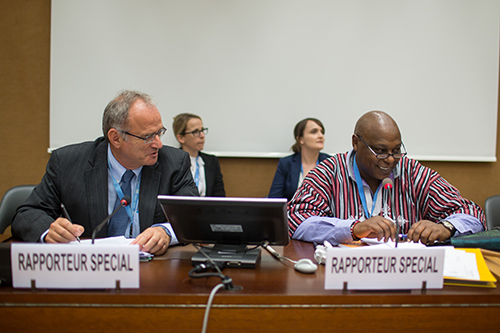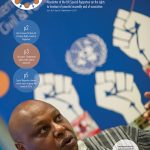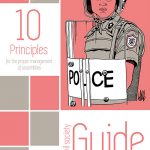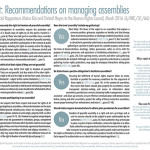 PRETORIA, South Africa/ISTANBUL, Turkey – Special Rapporteurs Maina Kiai and Christof Heyns held two expert consultations in August as part of their joint project to develop practical recommendations for the proper management of assemblies, as requested by the Human Rights Council in resolution 25/38.
PRETORIA, South Africa/ISTANBUL, Turkey – Special Rapporteurs Maina Kiai and Christof Heyns held two expert consultations in August as part of their joint project to develop practical recommendations for the proper management of assemblies, as requested by the Human Rights Council in resolution 25/38.
The first was held in Pretoria on August 7, and brought together 25 experts from Sub-Saharan Africa, North Africa and the Middle East. The meeting was hosted by Christof Heyns, Special Rapporteur on extrajudicial, summary or arbitrary executions, with Maina Kiai, Special Rapporteur on the rights to freedom of peaceful assembly and of association, represented by his research team.
Participants focused in particular on the use of force in the management of assemblies, and the importance of protecting the lives and bodily integrity of participants and others. They noted the importance of proper training, equipment, and protocols for law enforcement officers, and the need for measures to ensure the appropriate use of “less-lethal” weapons.
The second was hosted jointly by the Rapporteurs, and was held in Istanbul, Turkey, which co-sponsored resolution 25/38. It was attended by 23 experts from across the Asia-Pacific region.
Experts emphasized that the recommendations should focus on facilitation of the right to peaceful assembly and the fostering of an enabling environment. This requires at most the implementation of notification regimes – rather than permission requirements – and ensuring that permissible limitations interfere as little as possible with the right to peacefully assemble.
Experts also drew attention to the links between restrictions on the right to freedom of peaceful assembly and the privatization of public space, as well as the shrinking space globally for civil society. To this end, they emphasized the critical role played by assemblies in democracy and a society committed to human rights.
In response to a request from States for additional opportunities to engage, the Special Rapporteurs also hosted meetings for State representatives in Pretoria and Istanbul, in which expectations for the final compilation of practical recommendations were discussed.
“Assemblies are not a novel phenomenon – people taking to the street has played an important role in shaping our world and the development of the human rights system,” Heyns said. “Assemblies present opportunities as well as challenges, depending on how they are managed by everyone involved. These recommendations provide us with an opportunity to ensure the better management of assemblies and thus the protection of the rights of all involved.”
The August meetings were the second and third in a series of consultations being convened to help the Special Rapporteurs draft the recommendations. The first consultation, for the Americas region, was held in Santiago, Chile, in April.
Heyns and Kiai both emphasized that the meetings form an important part of a broader consultation process, along with the comprehensive questionnaire aimed at soliciting input from States and civil society.
The next phase of the consultation process is the final expert meeting for Europe and Central Asia to be held in Geneva in October. A consultation with State representatives, and an expert meeting of the Advisory Panel to review the draft compilation will closely follow this.
For more on the project, please see our hub page.

 Tweet
Tweet
 Facebook
(0)
Facebook
(0) 





